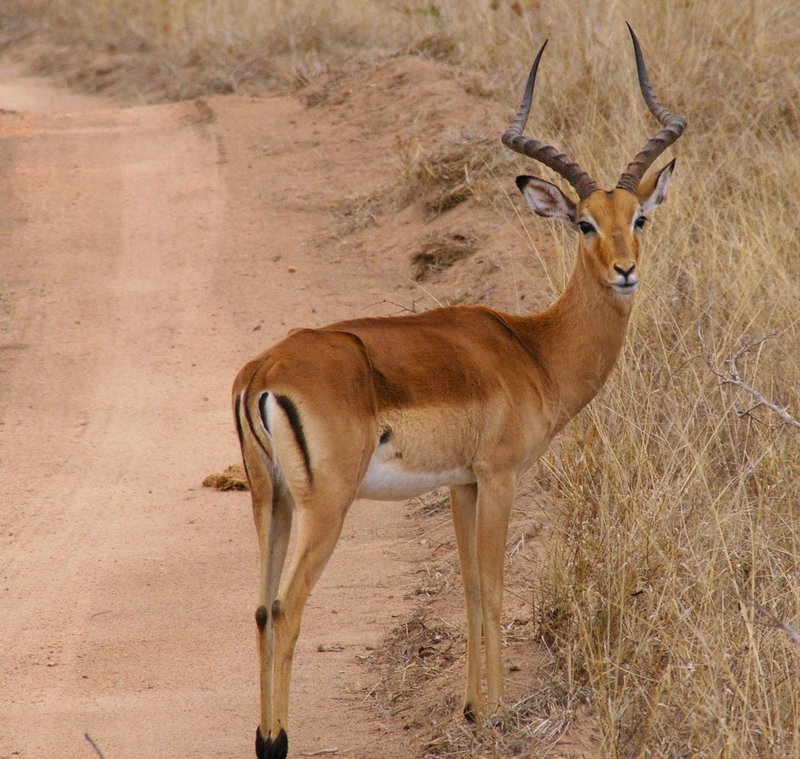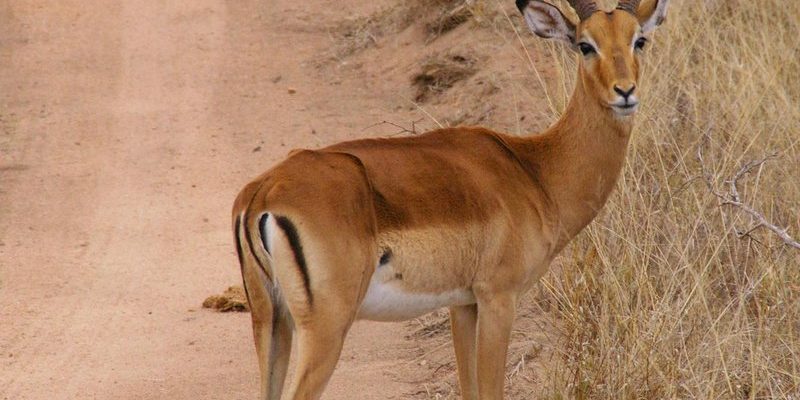
These animals are not just pretty faces; they are quick learners and social creatures, making them a perfect example of nature’s intelligence at work. From their impressive memory skills to their reactive behaviors, impalas showcase a complex understanding of their surroundings that goes beyond mere survival. So, let’s dive deeper into the cognitive abilities of the impala and see just how smart they really are.
Understanding Impala Behavior
Before we get into the nitty-gritty of their intelligence, it’s important to understand the day-to-day behaviors of impalas. These animals are notorious for their incredible agility and speed, able to outrun many predators in their African habitat. But there’s more to their behavior than just running fast.
Impalas live in social groups called herds, which can range from a few dozen to hundreds of individuals. This social structure isn’t just for show; it helps them stay alert to dangers like lions or hyenas. When one impala senses danger, it often signals the rest of the herd. This behavior showcases collective awareness and communication, which are key components of intelligent behavior.
You might be wondering why they stay in herds if it seems risky. Well, the safety in numbers strategy makes it harder for predators to single out one animal. This kind of clever social interaction hints at their cognitive abilities. They’re not just surviving; they’re actively engaging in behaviors that enhance their chances of survival.
Memory and Learning Capabilities
Memory is a crucial part of intelligence, and impalas have impressive recall abilities. They can remember the locations of food and water sources, which is vital in the sprawling savannas of Africa. This skill allows them to navigate their environment effectively, especially during dry seasons when resources become scarce.
Interestingly, studies have shown that impalas use both short-term and long-term memory to adapt to changing environments. For example, if a particular area becomes dangerous due to a predator sighting, they can learn to avoid that spot in the future. Their ability to learn from experiences helps them make better decisions, which is a clear sign of cognitive function.
You may also find it intriguing that young impalas learn from their mothers and peers. They pick up important survival skills, like recognizing potential threats or learning the best grazing spots. This social learning aspect is crucial for their survival and shows that their intelligence is not just innate but developed through experience.
The Role of Communication
Communication is another key factor in any discussion about intelligence. Impalas have a variety of vocalizations that serve different purposes, from warning calls to social interactions. They can convey distress, alert others to predators, or even signal their intentions within the herd.
The ability to communicate effectively strengthens their social bonds and enhances their survival chances. For instance, when a predator is spotted, a specific alarm call warns the rest of the herd, prompting them to regroup or flee. Isn’t that fascinating? It’s like they have a language all their own.
Additionally, their body language plays a significant role in communication. An impala might use visual signals like head movements or posture to express feelings of alertness or calmness. This interplay of vocal and non-verbal communication showcases their understanding of social dynamics, which is a hallmark of intelligent behavior.
Problem-Solving Skills
Impalas are often faced with challenges, whether it’s finding food, avoiding predators, or navigating their environment. Their problem-solving skills shine when they encounter barriers, like fences or water bodies. They’ve been observed using strategies to overcome these obstacles, such as finding the safest routes or using their agility to jump over barriers.
In one study, researchers observed that impalas could remember the best routes to take in response to past experiences. They are capable of planning ahead, which is a hallmark of advanced cognitive function. It’s like they’re little strategists, constantly evaluating their surroundings and adapting their strategies for success.
This problem-solving ability also extends to their interactions with other species. For example, impalas may observe how other animals react to predators and learn from those experiences. They can adapt their own behaviors based on what they’ve learned, showing flexibility in their thinking.
Adaptability and Survival Instincts
Adapting to ever-changing environments is critical for survival in the wild. Impalas are not just passive creatures; they actively assess and respond to the threats and opportunities surrounding them. Their adaptability is a testament to their intelligence.
For example, during predation, impalas often employ a “zig-zag” running style. This sudden change in direction makes it harder for predators to predict their movements and catch them. This clever tactic highlights their ability to think on their feet in dire situations.
Moreover, during migration, impalas can quickly adapt to different terrains and climates. They show remarkable resilience as they seek new grazing grounds, demonstrating their capacity to adjust to new challenges. This adaptability is crucial for their survival and showcases their intelligence in navigating complex ecosystems.
The Social Intelligence of Impalas
While we’ve discussed problem-solving and memory, let’s touch on the social aspect of impala intelligence. These animals thrive in groups, and their ability to connect with one another enhances their survival.
Impalas form strong social bonds within their herds. They engage in grooming behaviors, which not only help with hygiene but also strengthen relationships. These bonds lead to better coordination within the group, especially when facing threats. You might find it interesting that some impalas even exhibit altruistic behaviors, such as helping injured members of their herd.
Their social intelligence also helps them establish hierarchies within the group. This social structure allows for smooth interactions and reduces conflicts. Understanding social dynamics is a sign of cognitive prowess, showing that impalas are more than just instinct-driven animals.
When it comes to understanding the intelligence of the impala, it’s clear that these animals are much more than just speedy grazers. From their impressive memory and communication skills to their adaptability and social intelligence, impalas demonstrate a complex cognitive landscape.
So, next time you spot an impala gracefully bounding across the savanna, remember that there’s a lot going on in that agile body. They are clever survivors, constantly learning and adapting to their environment. Impalas truly embody the essence of intelligence in the wild, reminding us that every creature has its own unique set of skills and strategies for survival.

